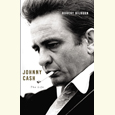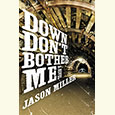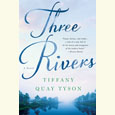In the Valley of the Shadow
Barry Kitterman’s From the San Joaquin finds meaning in small, lived moments
In From the San Joaquin Barry Kitterman, an English professor at Austin Peay State University in Clarksville, has created a fine example of the American short-story cycle, the kind of linked collection that Sherwood Anderson pioneered in his masterpiece, Winesburg, Ohio. In From the San Joaquin, ordinary men and women seeking a brighter future—a home, a job, a love affair, a wedding, a child—face defeat as a result of difficult circumstances and their own inadequacies. As with Winesburg, Ohio, the stories can be understood alone, but read together they form a web of meaning stronger and more complex than the individual parts.
As the title suggests, Kitterman’s tales are bound together by their relationship to California’s San Joaquin Valley. Surprisingly, it is not so far removed in spirit from Anderson’s own Midwestern setting, as seen through the eyes of retiree Cy Franklin in the collection’s first story, “The Man Who Raised Rabbits”: “He had moved to the San Joaquin after the war, leaving San Francisco in search of a small town like the ones he remembered in Iowa, towns made up of aunts and uncles and aging grandparents with accents left over from the worlds their own parents had left behind.” What Cy appreciates about the town of Ivanhoe is its clear relationship to his own past: “The people he’d met here when he first drove his Studebaker into town, the people in the gas stations and the feedstore, were just a generation removed from the farms and stores of the Midwest and Oklahoma and Texas. He found that comforting. During the war, the men he fought beside talked of California as if the whole place was a long sandy beach shaded by giant sequoias, one tree so big you could drive your car through it. But Cy’s California, Ivanhoe, was as familiar as the eighty acres he’d grown up on in Iowa.”
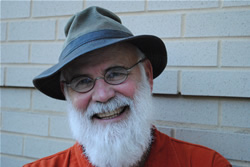 Familiar, perhaps, but not always an easy place to survive. Cy is able to work for twenty-eight years at the Sunkist orange-packing plant, but his friends and neighbors struggle to make ends meet as time goes on—often drifting from one unskilled, low-paying job to the next. Set presumably in the twentieth century yet spanning several generations, this collection presents a California of muted colors, menacingly dense fog, and a pervasive air of dissipation and disappointment. Kitterman’s simple, clear narrative style forces his characters to do the heavy lifting of storytelling, and his skillful use of first-person narration grounds the reader in the everyday language of these frequently sad and lonely people, slight and shadowy figures even in the stories of their own lives.
Familiar, perhaps, but not always an easy place to survive. Cy is able to work for twenty-eight years at the Sunkist orange-packing plant, but his friends and neighbors struggle to make ends meet as time goes on—often drifting from one unskilled, low-paying job to the next. Set presumably in the twentieth century yet spanning several generations, this collection presents a California of muted colors, menacingly dense fog, and a pervasive air of dissipation and disappointment. Kitterman’s simple, clear narrative style forces his characters to do the heavy lifting of storytelling, and his skillful use of first-person narration grounds the reader in the everyday language of these frequently sad and lonely people, slight and shadowy figures even in the stories of their own lives.
In the oddly compelling “Crazy People,” an aimless, angry man seems to know a lot more than he should about a local murder. “Rivers of Wood” describes the senseless bullying of a new employee at a lumber mill and the sudden violence that ends it. In the enigmatic “The Window,” a former professor sees something strange in the shape of a window stain at the university gymnasium where he goes to swim. In each of these stories, the painful events of the past intrude upon the characters’ lives to change the course of their future—and rarely for the better. This is never more striking than in “Wedding Day,” when a defeated and uninspired pastor unexpectedly finds the courage either to ruin a young couple’s happiness or save them both from a lifetime of despair, and only time will tell which one.
A few voices appear several times throughout the collection, most notably that of Johnny Foster, whom we meet as a teenager in “Boys from Poor Families,” a heart-breaking tale of family tragedy. Johnny ultimately leaves the San Joaquin in search of greater opportunities in Montana. In the gripping “Union Wages,” his job as an ironworker hired to build a fence around the local post office brings him into conflict with union workers in a small town: “I think about that morning. Probably not a week goes by that I don’t think about it. I see the pickets step away from their cars and trucks. I see a man throw his cigarette down and another man spit in the street. They walk toward us, toward Max, who stands in front of the Jimmy, still loaded down with wire and fittings. Max’s neck is too thin, and his Levis have shrunk an inch too high. Sid opens the door of the truck. He rests an arm, the one with all the names on it, along the back of the seat. And the man who is in charge of the rest of them, the man I know now has never been a sheriff’s deputy but would have made a good one, comes a little nearer. ‘You can’t win,’ he says.”
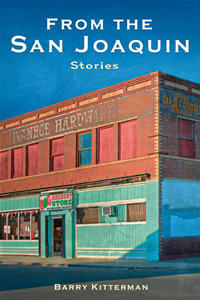 That statement could represent the theme of From the San Joaquin, if not for an occasional glimmer of light, the possibility of redemption, no matter how unlikely to be grasped. There aren’t a lot of heroes at hand, but in “Someone Like Me,” young Pauly Hubbard identifies so strongly with Nick, his sister Coral Ann’s boyfriend, who is soon to go off to war, that his eyes are always on him, searching for cues to prompt his own action, even at the local church revival meeting: “When [the preacher] had Coral Ann come play the piano real soft, everyone was supposed to close his eyes and look into his own heart. I raised my head and kind of squinted at that preacher, and he was staring right at Nick, and Nick was staring right back, not pretending to pray. We sang the invitation, “Why Not Tonight?” I saw Carol Ann look at Nick and smile, but Nick wouldn’t look at her. He wasn’t looking at the preacher anymore. He just stared at the painting in the baptismal like he knew there were fish in there. We didn’t get saved that night either.”
That statement could represent the theme of From the San Joaquin, if not for an occasional glimmer of light, the possibility of redemption, no matter how unlikely to be grasped. There aren’t a lot of heroes at hand, but in “Someone Like Me,” young Pauly Hubbard identifies so strongly with Nick, his sister Coral Ann’s boyfriend, who is soon to go off to war, that his eyes are always on him, searching for cues to prompt his own action, even at the local church revival meeting: “When [the preacher] had Coral Ann come play the piano real soft, everyone was supposed to close his eyes and look into his own heart. I raised my head and kind of squinted at that preacher, and he was staring right at Nick, and Nick was staring right back, not pretending to pray. We sang the invitation, “Why Not Tonight?” I saw Carol Ann look at Nick and smile, but Nick wouldn’t look at her. He wasn’t looking at the preacher anymore. He just stared at the painting in the baptismal like he knew there were fish in there. We didn’t get saved that night either.”
The most hopeful note comes in the final story of the collection (and the third narrated by Johnny Foster), “If I’d Known You Were Going to Stay This Long.” After many barren and unhappy years, Johnny finally returns to Ivanhoe and his parents’ house, where his now-frail father is fighting lung cancer. As Johnny spends time with his father, he realizes that he has, in a sense, become him: “And it hits me. I am so much like my father I can’t keep us straight anymore. He’s sitting in there in his recliner and I’ll be sitting in the other recliner . . . but then all of a sudden when I get up to take a leak or go for a hopeless look in the refrigerator, I can’t be sure if it’s me walking across the room this time or if it’s him. I take those first three steps bent over with grief, I pause at the window and look up at the sky, I clear my throat as if I’m going to speak, but I don’t. These are moves my father has made for as long as I can remember.”
His father wants Johnny to help him prune a huge overgrown tree in the backyard. Johnny climbs up, and from an old tree-house platform he pauses to take in the pleasant smell of the orange orchards and the view of the mountains on the horizon. That’s when he gets an idea: “I help him climb it step by step, then steady the ladder so he can make the big step to the lowest branch. When’s he’s halfway up the tree, I have a moment of sanity and wonder what the hell we’re doing. But he gives me a grimace and gets a knee up onto the tree house. I push him up so hard he almost goes over the other side. Once I get up next to him, he is content to let me do the actual pruning. It’s enough for him that he’s up there. . . . We just look at the horizon and breathe and sweat a little. I try not to think about how I’m going to get him back down on the ground.” It’s what they do together up in the tree that provides the closest thing to a moment of grace in Barry Kitterman’s From the San Joaquin. It suggests that life is perhaps less about the accomplishments of years and more about the significance of each small moment truly lived.
Barry Kitterman will appear at the 2011 Southern Festival of Books, held October 14-16 in Nashville.
